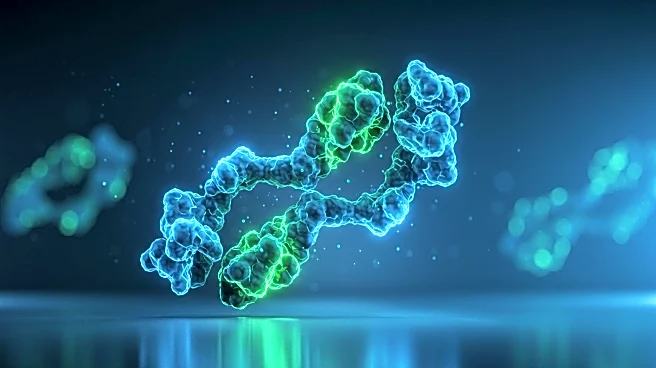What's Happening?
Recent research has identified a unique enzyme in modern humans, adenylosuccinate lyase (ADSL), which may have provided an evolutionary advantage over extinct relatives like Neanderthals and Denisovans. This enzyme, which differs by a single amino acid, plays a crucial role in DNA and RNA production. The study, published in PNAS, suggests that this variation may have influenced behaviors related to water-seeking, potentially aiding survival in resource-scarce environments. The research involved experiments with genetically modified mice to mimic human ADSL, revealing behavioral differences in water-seeking activities.
Why It's Important?
The discovery of this enzyme variation highlights the complex genetic factors that may have contributed to the survival and success of Homo sapiens over other hominin species. Understanding these genetic differences can provide insights into human evolution, particularly how small genetic changes can lead to significant behavioral adaptations. This research could also inform studies on genetic disorders related to ADSL deficiencies, offering potential pathways for medical advancements.
What's Next?
Future research will focus on understanding the precise molecular mechanisms by which ADSL influences human behavior and brain function. Scientists aim to explore other potential behaviors affected by this enzyme and its broader implications for human evolution. Additionally, further genetic studies may reveal more about the evolutionary pressures that favored this enzyme variation.
Beyond the Headlines
The study raises questions about the role of genetic variations in shaping human behavior and survival strategies. It also underscores the importance of interdisciplinary research in uncovering the complexities of human evolution, combining genetics, anthropology, and behavioral science.









